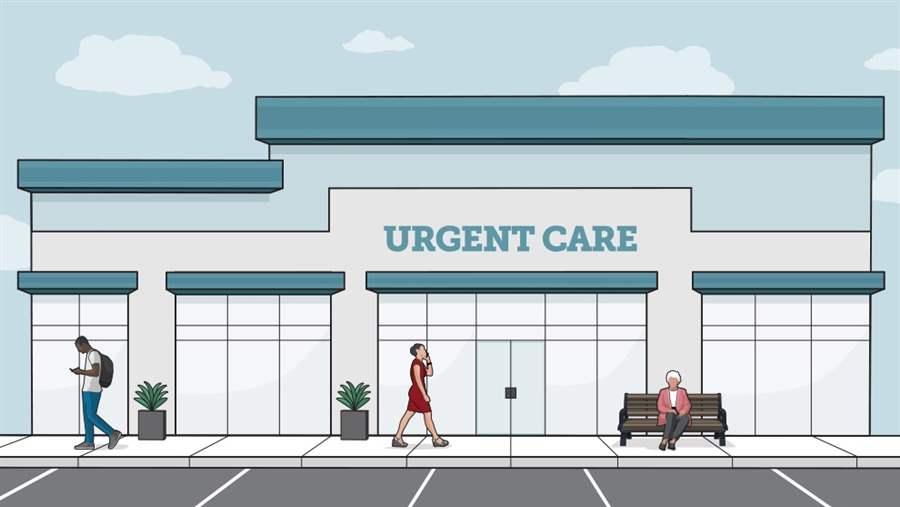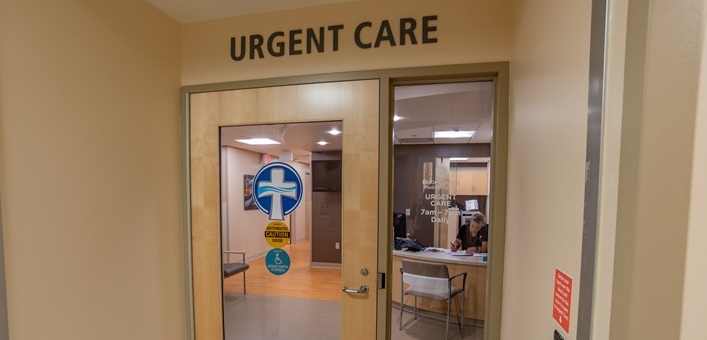Recognizing the Significance of Urgent Treatment Services for Non-Life-Threatening Medical Issues
The relevance of immediate treatment services for non-life-threatening medical problems can not be overemphasized, especially in today's health care landscape. These facilities use a crucial alternative for clients seeking prompt focus for problems that require immediate treatment but do not require a check out to the emergency room. By understanding the benefits of immediate care, such as decreased wait times and cost performance, one can much better appreciate their function in individual health and wellness management. Yet, the nuances of just how to browse these services efficiently remain to be explored, elevating concerns about their optimal application.
What Is Urgent Care?
Immediate care describes a group of medical services designed to resolve non-life-threatening problems that need prompt attention yet do not require a browse through to the emergency situation space. These facilities offer a bridge in between medical care and emergency solutions, providing accessible health care alternatives for individuals experiencing severe medical problems, such as small cracks, sprains, infections, or serious ailments that occur all of a sudden.

The scope of solutions given by immediate care centers can differ however typically includes therapy for typical ailments like colds, flu, and allergic reactions, in addition to minor injuries (urgent care). Additionally, several immediate care centers supply preventative solutions, such as inoculations and physical examinations, to attend to more comprehensive health demands. By using a practical alternative for urgent medical concerns, these centers play an essential function in the health care continuum, ensuring that people get appropriate care when they require it most
Benefits of Urgent Treatment Services
Lots of people find that using immediate treatment services offers considerable benefits over conventional emergency situation area gos to or waiting for a main treatment appointment. Immediate treatment centers generally have shorter delay durations, enabling people to receive timely medical interest when they require it most.
An additional advantage is the prolonged hours of procedure. Several immediate treatment facilities are open nights and weekends, accommodating individuals who may not be able to see their medical care doctor during regular office hours. This flexibility makes it much easier for individuals to gain access to treatment at their comfort.
Furthermore, immediate care services often supply a cost-efficient option to emergency situation rooms. When seeking treatment for small conditions at urgent treatment facilities rather than health center emergency situation divisions., individuals regularly deal with lower co-pays and general expenditures - urgent care.
Last but not least, immediate care centers are equipped to deal with a variety of non-life-threatening issues, giving a broad range of solutions under one roofing. This thorough technique not only streamlines the therapy process but additionally improves client fulfillment by delivering efficient and prompt treatment.
Common Problems Treated
What sorts of non-life-threatening conditions can individuals expect to obtain therapy for at immediate treatment centers? Urgent treatment facilities are equipped to deal with a vast selection of usual clinical issues that need prompt focus yet do not posture a prompt threat to life. These facilities frequently deal with conditions such as small cracks, strains, and pressures, giving important treatment for injuries that occur throughout daily activities or sports.
Furthermore, clients regularly look for therapy for respiratory infections, consisting of colds, flu, and respiratory disease, where timely treatment can relieve signs and stop problems. Skin conditions such as rashes, insect attacks, and minor burns are also generally attended to, as timely treatment can mitigate discomfort and lower the threat of infection.

Contrasting Urgent Care and Emergency Situation Areas

One substantial difference waits times; immediate treatment centers usually have shorter delay times compared to emergency rooms, which can be congested with even more important instances. websites This effectiveness allows clients to receive prompt therapy for their disorders.
From an economic point of view, immediate care gos to often tend to be less costly than emergency situation room gos to. Insurance coverage copays and out-of-pocket expenses are frequently lower at urgent care facilities, making them an extra affordable selection for non-emergency situations.
Exactly How to Choose an Urgent Care Center
Picking the best immediate care center can dramatically enhance the quality of treatment received during a non-life-threatening medical concern. When picking an urgent care center, several essential factors should be taken into consideration.
First, evaluate the center's accreditation and licensing. Seek centers that are approved by acknowledged companies, as this suggests adherence to high quality requirements. Next, assess the variety of services used. Some urgent care facilities concentrate on certain areas, while others supply extensive treatment for various clinical problems.
Additionally, think about the area and hours of operation. A comfortably located facility with extensive hours can be important for prompt treatment. It's likewise suggested to inspect the facility's wait times and client testimonials, which can supply understandings right into the total client experience.
Conclusion
Finally, immediate treatment solutions play an important role in dealing with non-life-threatening medical issues effectively. By offering immediate focus for different problems, these centers enhance individual accessibility to prompt treatment while decreasing the strain on emergency clinic. The benefits of immediate treatment, consisting of extended hours and reduced costs, make them a positive alternative for people looking for prompt therapy. Inevitably, recognizing the importance of urgent treatment facilities adds to boosted healthcare monitoring and client complete satisfaction.
 By providing a convenient option for urgent medical concerns, these facilities play a crucial duty in the medical care continuum, making certain that people get proper treatment when they need it most.
By providing a convenient option for urgent medical concerns, these facilities play a crucial duty in the medical care continuum, making certain that people get proper treatment when they need it most.Several people locate that making use of urgent treatment services supplies significant benefits over conventional emergency room gos to or waiting for a key care consultation. Many immediate treatment centers are open evenings and weekend breaks, suiting individuals that may not be able visit the site to see their main care doctor throughout regular workplace hours. Urgent care centers are made to deal with non-life-threatening problems, such as minor cracks, infections, and illnesses, supplying a hassle-free alternative to emergency areas for those in demand of immediate treatment. Some urgent treatment facilities specialize in specific locations, while others offer extensive care for various clinical concerns.